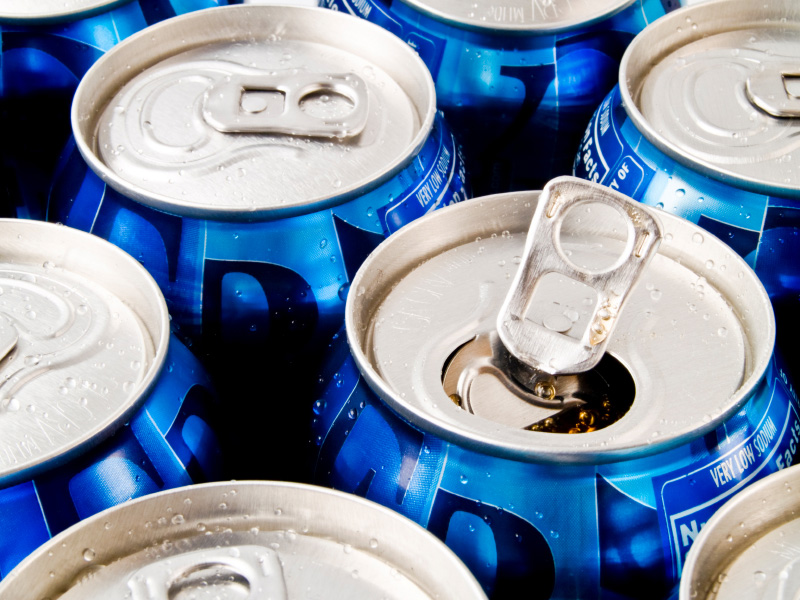More Health and Nutrition Bites
Related
More evidence against sweet drinks
If you've been reading the Dr. Gourmet's Health & Nutrition Bites for even a little while, you are probably aware that I'd much rather you drank water, coffee, or tea rather than sugar-sweetened beverages. Aside from the fact that they are too often excess, empty calories, we have seen in multiple studies that apart from their caloric content they have been linked with a greater risk of stroke, poorer metabolic scores, and may contribute to higher blood pressures.
Beverage taxes work
I talked just last week about the dangers of drinking sugar-sweetened beverages and repeated my recommendation that people drink water, tea, or coffee. If only it were that easy to get people to stop drinking sodas. One of the ways people have tried to influence how much soda people are drinking is by taking a note from the fight against smoking: tax it.
Three ways drinking soda is bad for your heart
For years I've been reporting on the effects of drinking sugar-sweetened beverages - including sugary sodas, sweetened fruit juice drinks, and sweetened teas or other drinks - on your health. We've seen evidence that drinking more sugar-sweetened beverages leads to greater risk of weight gain, diabetes, heart disease, and stroke.
Health & Nutrition Bites
Get the latest health and diet news - along with what you can do about it - sent to your Inbox once a week. Get Dr. Gourmet's Health and Nutrition Bites sent to you via email. Sign up now!
Sugar-sweetened sodas may contribute to your risk of colon cancer

Drinking sugar sweetened beverages may do more than harm your waistline: they may contribute to your risk of colon cancer.
An analysis of data gathered from the Nurses' Health Study and the Health Professionals Follow-up Study, both long-term, large-scale prospective studies, suggests that when compared to those who never drank sugar-sweetened beverages, those who drank at least 1 serving per day were 38% more likely to develop a specific type of colon cancer - and are more than twice as likely to die from it.
An international team of researchers, including scientists affiliated with Harvard University, in Massachusetts; two universities in Korea; and Washington University, in St. Louis, Missouri; published a paper in the American Journal of Clinical Nutrition (2022;115:1481-1489) recently describing their analysis of the dietary and health data gathered over close to 50 years from over 121,000 men and women.
Their research was prompted by the findings in vitro and in mouse studies that fructose may enhance tumor growth in colon cancers. This would require, of course, that fructose be present in the colon.
To (somewhat) oversimplify: Normally fructose is metabolized in the liver after it is absorbed in the small intestine. Unfortunately, consuming sugar-sweetened beverages can overwhelm the ability of the small intestine to absorb that fructose, meaning the fructose is not absorbed in the small intestine and is passed to the large intestine - the colon.
The theory, then, is that this excess fructose present in the colon may affect the growth of cancerous tumors, causing them to grow more quickly or become more dangerous in other ways.
The authors analyzed the participants' intake of total fructose as well as their intake of sugar-sweetened beverages containing High Fructose Corn Syrup and looked at the relationship between intake and colon cancers in various locations in the large intestine. They found that sugar-sweetened beverage consumption was strongly related with cancers in the proximal colon (the portion of the colon just following the small intestine) but was far less related with cancers in the distal colon or rectum (what we might call "the far end" of the colon).
That said, with data modeling the authors also found that substituting just one serving of an artificially-sweetened [diet] beverage for one serving of a sugar-sweetened beverage "was associated with reductions of 18.7% ... and 25.3% in the incidence and mortality of proximal colon cancer".
What this means for you
The outcome remains the same: diet sodas are better for you than sugar-sweetened beverages, but water, coffee, or tea are your best choices for regular consumption. This study is just another reason to cut soda and other sugar-sweetened beverages out of your life.
August 3, 2022
